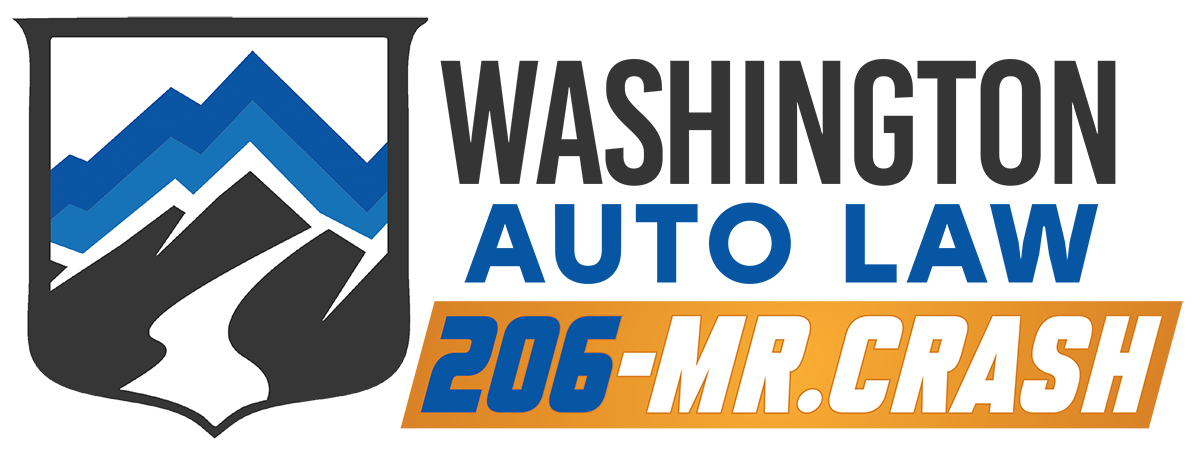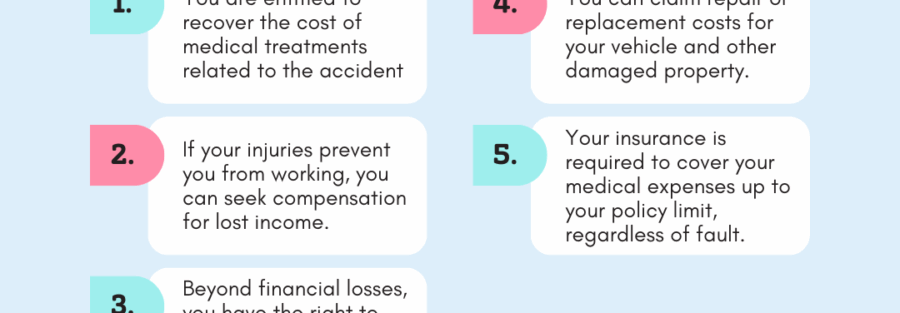At Washington Auto Law, we understand that being involved in an auto accident can be a confusing and overwhelming experience. Whether it’s a minor fender bender or a serious collision, the aftermath often leaves victims with physical injuries, emotional distress, and financial burdens. It’s crucial to know your rights and responsibilities to protect yourself and ensure a smooth road to recovery. We’ve put together this comprehensive guide to help auto accident victims in Washington navigate their path to justice and compensation.
Immediate Steps to Take After an Accident
The immediate aftermath of an accident can be chaotic, but staying calm and taking the right steps is essential. First and foremost, prioritize your safety and the safety of others involved. If possible, move the vehicles to a safe location to avoid further collisions. If someone is injured, avoid moving them unless it’s necessary to prevent further harm. Call emergency services to report the accident and request medical assistance if needed.
Accurately documenting the incident is critical. Take clear photographs of the accident scene, vehicle damage, road conditions, and any visible injuries. If there were witnesses, gather their contact information as their statements may support your case later. Exchange insurance and contact details with the other party involved, and ensure you gather their driver’s license information and vehicle registration.
In Washington State, notifying the police is mandatory for any accident involving injury, death, or property damage exceeding $1,000. The police report serves as an official record of the incident, which can be an essential piece of evidence in your claim. Additionally, you must file a Collision Report with the Washington State Department of Transportation within four days of the accident if law enforcement does not complete one. Failure to report the accident could result in a citation and may complicate your ability to file an insurance claim or lawsuit.
Understanding Washington’s Pure Comparative Fault Rule
Washington operates under a pure comparative fault system, which can significantly impact the outcome of your claim. This rule means that the compensation you receive can be reduced by the percentage of fault assigned to you. For example, if you are found to be 20% at fault for the accident, your total compensation will be reduced by 20%.
This rule is designed to ensure that each party is held accountable for their role in causing the accident. However, it also means that insurance companies or the other driver’s legal team may try to shift as much blame onto you as possible to reduce the amount they have to pay. Having strong evidence, such as photographs, witness statements, and police reports, is critical to minimizing your assigned fault percentage.
For instance, consider a scenario where a driver runs a red light and hits your car, but you were driving slightly above the speed limit. The insurance company might argue that your speeding contributed to the accident. In such cases, your compensation will be adjusted based on the degree of fault assigned to you. Working with an experienced attorney can help ensure that fault is assigned fairly and that your compensation is maximized.
Your Rights as an Auto Accident Victim
As an auto accident victim in Washington, you have several rights designed to protect you and ensure you are fairly compensated for your losses. These include:

- Compensation for Medical Expenses: You are entitled to recover the cost of medical treatments related to the accident, including hospital bills, doctor visits, physical therapy, prescription medications, and any necessary long-term care.
- Reimbursement for Lost Wages: If your injuries prevent you from working temporarily or permanently, you can seek compensation for your lost income. This includes not only your regular wages but also bonuses, commissions, and other income opportunities you may have missed.
- Damages for Pain and Suffering: Beyond financial losses, you have the right to seek compensation for non-economic damages, such as physical pain, emotional distress, mental anguish, and loss of enjoyment of life.
- Property Damage: You can claim the cost of repairing or replacing your vehicle and any other personal property damaged in the accident.
- Personal Injury Protection (PIP): Washington is a no-fault state when it comes to PIP insurance. Regardless of who caused the accident, your own insurance company is required to cover your medical expenses up to your policy limit. PIP can also cover lost wages and funeral expenses in some cases.
Understanding these rights is crucial in ensuring that you don’t settle for less than you deserve. Insurance companies may attempt to downplay the severity of your injuries or the value of your claim. Knowing what you are entitled to can make all the difference in securing fair compensation.
Dealing With Insurance Companies
Insurance companies are profit-driven businesses, and their goal is often to minimize the amount they pay in claims. After an accident, you may receive a quick settlement offer that seems appealing, especially if you’re dealing with mounting medical bills and lost income. However, these initial offers are often far below the actual value of your claim.
Before accepting any offer, it’s vital to consult with an experienced personal injury attorney. Your attorney can help you accurately calculate the full extent of your damages, including future medical expenses, lost earning capacity, and non-economic damages like pain and suffering. With this information, they can negotiate with the insurance company on your behalf to secure a fair settlement.
For example, if you suffered a neck injury that requires long-term physical therapy, the insurance company may only offer to cover your immediate medical expenses. An attorney can ensure that the settlement reflects the ongoing costs associated with your injury.
Additionally, be cautious about providing recorded statements to insurance adjusters without legal representation. These statements can be used against you to reduce your claim. Always consult with an attorney before discussing the details of the accident or your injuries with the insurance company.
Statute of Limitations for Auto Accident Claims
In Washington, the statute of limitations for filing a personal injury lawsuit is three years from the date of the accident. This means you must file your claim within this time frame, or you may lose your right to seek compensation.
While three years may seem like a long time, it’s important to act promptly. Gathering evidence, negotiating with insurance companies, and building a strong case can be time-consuming. Delays can also lead to key evidence being lost or witnesses becoming unavailable.
For instance, if you wait too long to file your claim, the other party might argue that your injuries were not related to the accident or that you failed to mitigate your damages. Acting quickly ensures that your case is as strong as possible and that you have the best chance of receiving fair compensation.
Why Legal Representation Matters
Navigating the aftermath of an auto accident can be complex and overwhelming, especially when dealing with insurance companies, medical bills, and legal deadlines. Hiring an experienced personal injury attorney can provide you with the guidance and support you need during this challenging time.
An attorney can:
- Investigate the accident to determine fault and gather evidence to support your claim.
- Handle all communication and negotiations with insurance companies to protect your interests.
- Accurately calculate your damages to ensure you receive fair compensation.
- Represent you in court if a fair settlement cannot be reached.
For example, if the insurance company disputes the severity of your injuries, an attorney can work with medical experts to provide evidence of your condition and its impact on your life. This can strengthen your case and increase the likelihood of a favorable outcome.
Proactive Steps to Protect Yourself After an Accident
While no one expects to be involved in a car accident, being prepared can make a significant difference in protecting your rights and ensuring a smooth recovery process. Here are some proactive steps to take:
- Review Your Insurance Policy: Familiarize yourself with the coverage provided by your policy, including PIP, uninsured/underinsured motorist coverage, and liability limits.
- Keep an Emergency Kit in Your Vehicle: Include items like a first-aid kit, flashlight, pen and paper, and a copy of your insurance information.
- Know What to Say at the Scene: Avoid admitting fault or making statements that could be interpreted as accepting responsibility. Stick to the facts when speaking with the other driver and the police.
- Seek Medical Attention Promptly: Even if you feel fine after the accident, some injuries may not become apparent until days or weeks later. A medical evaluation can ensure that any injuries are documented and treated promptly.
- Consult an Attorney Early: The sooner you seek legal advice, the better prepared you will be to handle the claims process and protect your rights.
Conclusion
This guide provides a detailed overview of your rights and responsibilities as an auto accident victim in Washington. From understanding the pure comparative fault rule to dealing with insurance companies and meeting legal deadlines, there are many factors to consider when pursuing a claim.
At Washington Auto Law, we specialize in representing auto accident victims and fighting for their rights. We’re committed to providing personalized, compassionate, and effective legal representation to help you recover physically, emotionally, and financially.
If you or a loved one has been injured in an auto accident in Washington, don’t hesitate to contact us for a free consultation. Let us guide you through this difficult time and help you secure the compensation you deserve. or informational purposes only and does not constitute legal advice. Please consult with a lawyer for advice specific to your situation.

